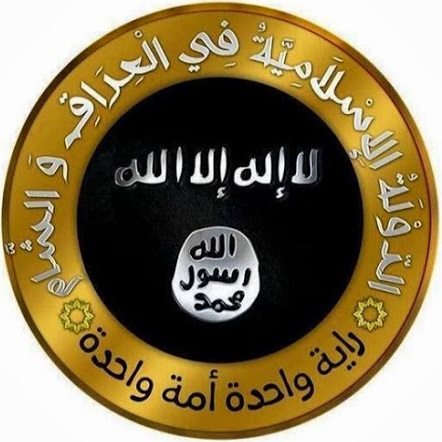Editorial: America cannot ignore Iraq, Middle East

Iraq’s long history of conflict stems from the Sunnis and the Shiites. The violence has escalated as the Islamic State group, whose emblem is pictured, has taken over parts of Iraq.
July 16, 2014
Although some Americans had no idea there were problems in Iraq, or even where Iraq was on a map before we were in a war with them, troubles in Iraq have been carrying on for hundreds of years. A fundamental split between Muslims occurred in 632 A.D. after the Muslim prophet Muhammad died and there needed to be a decision of who was going to be his successor.
Sunnis are the largest group of Muslims in the world with roughly 1.6 billion people. Iraq and Iran are primarily populated by the Shia branch of Islam. The two sides often do not agree. Iraq was under the control of the Shiite until Saddam Hussein — who was a strong member of the Sunni community — came into power and changed the religious views of the government.
Although Hussein is no longer Iraq’s leader and the United States is not as heavily involved in the area, there is a continuing conflict in Iraq. It is unfortunate that many Americans do not understand the issue. Americans, especially young adults, should make a better effort to educate themselves and stay informed about global issues like the situation occurring in Iraq.
The battles between the Sunni and Shiites are getting more and more violent. A Sunni militant group known as the Islamic State has now successfully taken over parts of Iraq. This violence has spread into nearby countries such as Syria, which is already dealing with their own civil war.
The Islamic State group used to be part of the al-Qaida terrorist group before al-Qaida dropped them for their brutality and extremism. The group has been torturing and executing — often by beheading — many citizens within areas of its control.
The violence in the Middle East needs to be slowed down, and for Americans to think that we can just turn the other cheek and not pay any attention to what is happening now is wrong. President Barack Obama recently announced that he will deploy up to 300 military advisers to Iraq to gather information about the situation and aid struggling Iraqi security forces.
In the press conference June 19, President Obama also said the United States is prepared to “take targeted and precise military action if and when we determine the situation on the ground requires it.”
Yes, it is true that America has spent a large amount of time in the Middle East trying to change the situation — but we tried to do that in a country has been battling itself for hundreds of years.
Whether or not it is the right choice for the United States to intervene in the area is still unclear. However, it is wrong that we ignore the issues of other countries whose citizens are suffering.
The situation in Iraq is just one example of the many issues and conflicts going on around the world. It is a sad reality that many Americans, especially college students, do not pay attention to or fully understand global issues.
As conflict advances in Iraq the ability to protect the Iraqi people and the interests of the U.S. government are becoming more and more difficult, Obama said in a press conference.
The United States has interests in the area, including foreign oil, and as conflict continues to spread to other countries, the United States retaining oil from the Middle East will become a struggle for both Americans and the U.S. government.
Considering the United States’ history of involvement in the Middle East and the recent announcement of military advisors being sent to Iraq, it is incredibly important for American citizens to take interest and make an effort to understand the issues at hand.
Whether we believe that it is right or wrong for the United States to become more involved in the region, it seems as though we will be connected in some form — currently it is through 300 military advisers — to Iraq for the foreseeable future. So let’s take the initiative to both learn and care about the issue.
















